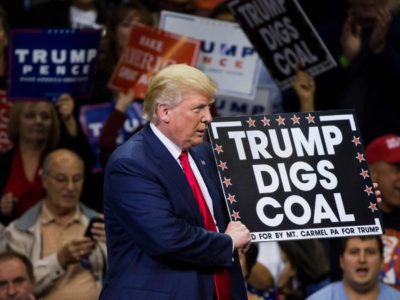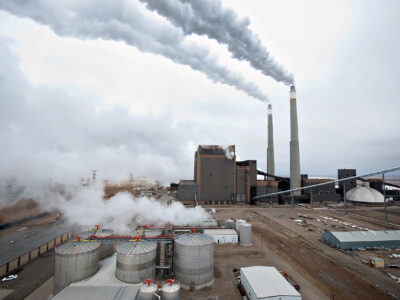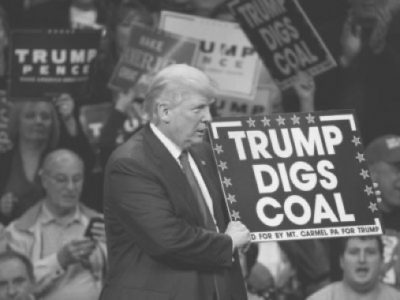Climate Change
Does the Law Require Cost-Benefit Analysis?
According to the D.C. Circuit, the answer is no.
Putting aside the particulars of the case, it seems wrong to apply the same standard (monetized cost-benefit analysis) to every provision in environmental law. These provisions have different language, reflecting differences in congressional priorities. Some provisions, for instance, may be designed push industry to find innovative solutions; others may reflect Congress’s value judgments or a desire to limit EPA’s discretion. We shouldn’t assume that the myriad differences in statutory language are irrelevant and that Congress wanted agencies to adopt the same method of making decisions in every case.
CONTINUE READINGA Very Bad House Vehicle Pollution Bill
The Fuel Emissions Freedom Act may be a stunt, but it’s worth examining
It can be hard to keep track amid all the hair-raising developments in Congress and at the Supreme Court, but last week, a group of House Republicans led by Roger Williams of Texas introduced the Fuel Emissions Freedom Act, hot on the heels of the purported (illegal) termination of California’s vehicle emissions standard waiver. This freedom-to-pollute …
Continue reading “A Very Bad House Vehicle Pollution Bill”
CONTINUE READINGThe Emperor’s New Endangerment Theory (Wrap-Up)
Trump’s EPA says carbon emissions from U.S. power plants are too insignificant to regulate.
U.S. power plants emit 1.5 billion tons of carbon dioxide a year, a little less than the entire country of Russia. The Trump Administration is proposing to end all regulation of carbon emissions by power plants, on the theory that these emissions should be considered insignificant. They have some complicated legal arguments , but the arguments break down the more closely you look at them.
CONTINUE READINGThe Emperor’s New Endangerment Theory (Part III)
How did EPA get to the absurd conclusion that 1.5 billion tons of carbon emissions aren’t significant? Well might you ask.
There is a very good chance that a court would strike down a EPA’s current finding that carbon emissions from the U.S. power sector are too insignificant to regulate. EPA’s effort to explain its ultimate conclusion rests on a hodgepodge of poorly analyzed considerations, which obviously have been reverse engineered to lead to EPA’s preferred conclusion.
CONTINUE READINGThe Emperor’s New Endangerment Theory (Part II)
To justify a decision not to regulate CO2 from power plants, EPA had to twist statutory language beyond all recognition.
According to EPA, carbon emissions from the U.S. power sector are too insignificant to warrant regulation. This is a bizarre conclusion: U.S. power sector’s emissions are around 6.5 billion tons, just below Russia’s total emissions from all sectors. To reach this conclusion, EPA has proposed a novel reading of the Clean Air Act. In EPA’s view, before it could regulate those emissions, it would first have to make a formal finding that they “cause or significantly contribute” to climate change, and (2) that this has to be judged on the basis of the sector’s percentage of total global carbon emissions. The statute doesn’t say either of those things.
CONTINUE READINGThe Emperor’s New Endangerment Theory (Part I)
EPA says the electricity sector’s climate impacts aren’t significant. Really??
EPA has proposed a novel reading of the Clean Air Act (CAA) that would foreclose any regulation of CO2 emissions from power plants. EPA’s core argument is that the statute requires it to determine whether an industry’s emissions “cause or contribute significantly” to climate change and that the industry’s carbon emissions don’t meet that standard. …
Continue reading “The Emperor’s New Endangerment Theory (Part I)”
CONTINUE READINGA Path Forward for Vehicle Electrification?
It’s been a rough few months for vehicle electrification efforts in the United States. While Congress swaps proposals to eliminate federal electric vehicle purchase, manufacturing, and charging incentives in order to “pay for” massive tax cuts for the wealthy, President Trump last week signed a Congressional Review Act resolution that claims to eliminate California’s nation-leading …
Continue reading “A Path Forward for Vehicle Electrification?”
CONTINUE READINGLast Year’s Climate Bond May Not Be What You Thought
While investing in important adaptation and resilience measures, Proposition 4 does less to create new clean energy infrastructure investments
Last year, legislators passed, the governor signed, and California voters approved, a ten billion dollar climate bond (the Safe Drinking Water, Wildfire Prevention, Drought Preparedness, and Clean Air Bond Act of 2024, SB 867 (Allen), which appeared on the November ballot as Proposition 4). While the bond act’s full title largely tells the story of …
Continue reading “Last Year’s Climate Bond May Not Be What You Thought”
CONTINUE READINGCan Trump Save U.S. Coal? Not likely.
“Beautiful clean coal”, as Trump calls it, is inexorably declining.
The title of one of Trump’s executive orders is “Reinvigorating America’s Beautiful Clean Coal Industry.” That order says, “it is the policy of the United States that coal is essential to our national and economic security.” But Trump’s efforts seem unlikely to make a dent in the long-term, global malaise of the coal industry, or its sharp decline in the U.S.
CONTINUE READINGSupply-Side Regulations & Clean Vehicles
As Congress votes to undermine California’s sovereignty to set supply-side standards on polluting vehicles, CLEE’s research shows why these policies are so effective
In May 2025, both the U.S. House and Senate passed resolutions to revoke California’s Clean Air Act waivers, which allow the state to enforce stricter vehicle emissions rules than federal standards (see Ann Carlson’s post on this issue). If signed by the President—and if successful in the face of court challenges to their dubious legality—these …
Continue reading “Supply-Side Regulations & Clean Vehicles”
CONTINUE READING










